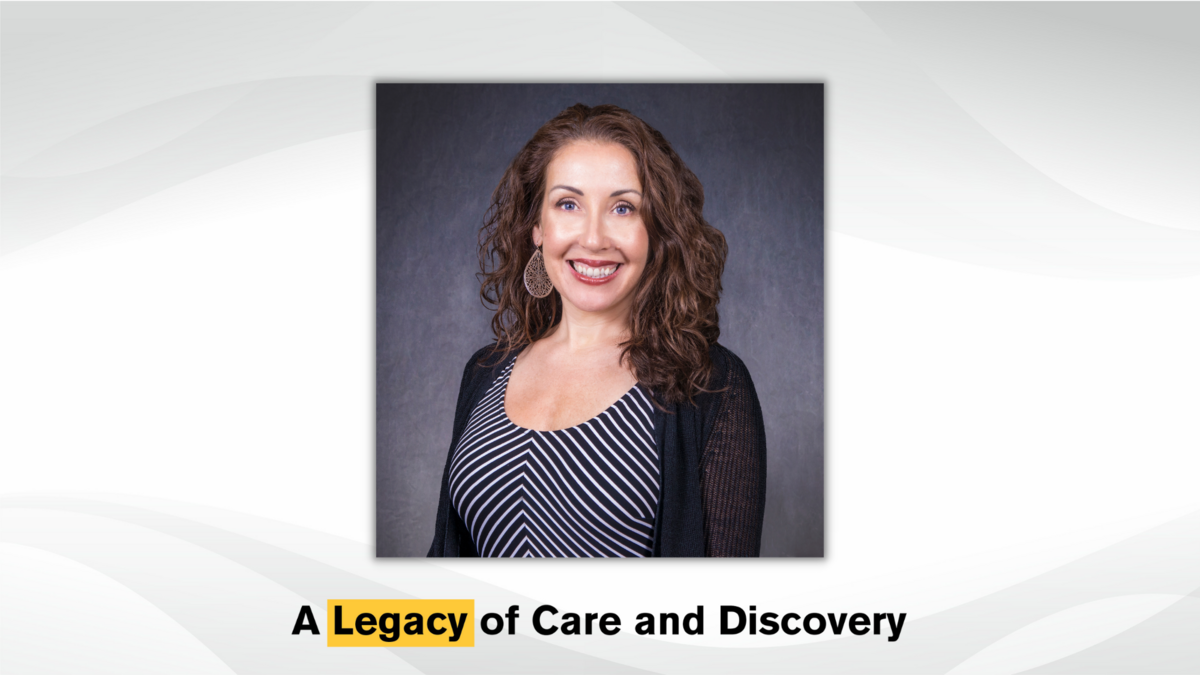ASU nursing alum thrives in health tech career

ASU alumna Lisa Blue has stayed connected to Edson College serving as a mentor for students in the Master of Healthcare Innovation program.
As a nurse, Lisa Blue has firsthand knowledge of how the health care system works and areas that could use some disruption to improve health care delivery and, most importantly, patient outcomes.
In order to help impact systems changes, Blue enrolled in Edson College of Nursing and Health Innovation’s Master of Healthcare Innovation program.
“The MHI program was, and is, an exceptional program, and given the choice again, I would most certainly choose the same. The pillars of the program are so relevant to real-world roles and I was able to apply them immediately and enhance the work that I was doing,” Blue said.
She graduated in 2014 and is currently the vice president of clinical innovation at Providertech, a company that leverages mobile outreach technologies, artificial intelligence and clinical expertise.
In addition to her current role, Blue launched a health care consulting company in 2016, allowing her to be involved in unique and interesting opportunities.
While her health tech career has taken off, she’s continued to stay connected to Arizona State University's Edson College, first as an adjunct faculty member and now as a mentor for students during their capstone projects.
Here, Blue describes how she navigated the program while working full-time and shares some advice for anyone considering the Master of Healthcare Innovation program.
Question: How did your degree program help you in achieving and maintaining the position you have now?
A: While I was in my MHI program, I was the director of population health for a large federally qualified health center in the Valley. As a part of that role, I successfully developed and implemented a new model of care in our organization. I was able to apply what I was learning directly to the work that I was doing, real-time integration. The position led to another where I work with clients to develop similar models of care and patient engagement strategy.
Q: What is a favorite memory from your time in your program?
A: The best part of the MHI program for me was that there were professionals from many different parts of health care. As an RN with many years of experience in my field, I had the nursing perspective but having classmates in areas such as finance, technology and operations really helped me broaden that perspective and learn how to better communicate across these different parts of the health care continuum.
Q: What advice would you give to students who are currently enrolled in the program?
A: Don't forget to utilize the power of your program networks, both during and after your program. It's a powerful tool to leverage professionally.
Q: What were some unique challenges, if any, you had to overcome while pursuing this degree?
A: Like most of my classmates, I was working full-time throughout my program. Finding the balance between my job, my program and my home life took some adjusting to stay focused — and sane. One tip I utilized was that Friday evenings were my time off; even if that meant an early start on Saturday morning, I gave myself that grace.
To learn more about Edson College alumni activities, events and programming visit the alumni section of the college's website.
More Health and medicine

College of Health Solutions launches first-of-its-kind diagnostics industry partnership to train the workforce of tomorrow
From 2007 to 2022, cytotechnology certification examinees diminished from 246 to 109 per year. With only 19 programs in the…

ASU's Roybal Center aims to give older adults experiencing cognitive decline more independence
For older people living alone and suffering from cognitive decline, life can be an unsettling and sometimes scary experience.…

Dynamic data duo advances health research
The latest health research promises futuristic treatments, from cancer vaccines to bioengineered organs for transplants…

